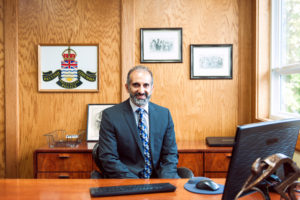Introduction: A Legal Expert’s Perspective on Bail Reform
Rob Dhanu (KC), a seasoned criminal defense lawyer and former federal Crown prosecutor, has emerged as a prominent voice in the ongoing discussions surrounding bail reform in British Columbia. With the introduction of Bill C-48, aimed at tightening bail conditions for violent repeat offenders, Dhanu has offered a nuanced perspective on the proposed changes, highlighting both their potential impact and the deeper issues that may remain unaddressed.
Bill C-48: A Political Response to a Complex Issue
Bill C-48, tabled in the Canadian Parliament, proposes significant amendments to the Criminal Code, including stricter bail conditions for those with a history of violent offenses. The bill introduces a “reverse onus” provision, requiring suspects to prove why they should be granted bail, particularly if they have previous convictions involving violence. While many politicians and public safety advocates in B.C. have lauded the bill as a necessary measure to protect communities, Dhanu has expressed skepticism about its effectiveness.
“Bill C-48 is a political response to this problem,” Dhanu remarked in a recent interview. He emphasized that while the bill may appear to address public concerns about rising crime rates, it does not tackle the root causes of violence. According to Dhanu, issues like homelessness, mental health, and addiction are the real drivers of the increase in random violence across the province. He argues that without addressing these underlying factors, the impact of stricter bail laws will be limited.
The Balance Between Safety and Rights
Dhanu’s perspective is grounded in a deep understanding of the criminal justice system and a commitment to maintaining the balance between public safety and individual rights. He acknowledges that Canada must strike a delicate balance between keeping streets safe and upholding the principles of a free and democratic society.
“Our bail laws already address these issues,” Dhanu explained, noting that current laws are often sufficient to keep dangerous individuals in custody. He pointed out that the public often hears about cases where offenders are released on bail, but not about the many instances where individuals with extensive criminal records are detained.
Dhanu is concerned that Bill C-48 could lead to a more punitive system without effectively reducing crime. He believes that for legislation to make a meaningful difference, it would need to be “extreme,” veering toward harsher punishments—a path that Canada has historically avoided.
A Call for Comprehensive Solutions
Beyond critiquing Bill C-48, Dhanu advocates for a more comprehensive approach to tackling crime. He emphasizes the need for meaningful investments in social services that address the root causes of criminal behavior. This includes better mental health support, addiction treatment, and initiatives to combat homelessness.
Dhanu’s views resonate with the broader debate on public safety in B.C., where the provincial government has also launched initiatives like the Repeat Violent Offending Intervention Initiative. This program, which includes regional hubs staffed by police, prosecutors, and probation officers, aims to break cycles of recidivism by closely monitoring prolific offenders.
Conclusion: A Thoughtful Voice in the Debate
As the debate over bail reform continues, Rob Dhanu’s insights provide a thoughtful counterbalance to the prevailing narratives. His emphasis on addressing the root causes of crime, rather than relying solely on tougher laws, challenges policymakers to consider more holistic solutions. In a time of heightened public concern over safety, Dhanu’s perspective serves as a reminder that effective crime prevention requires more than just changes to the legal system—it demands a comprehensive approach that addresses the social issues at the heart of criminal behavior.






